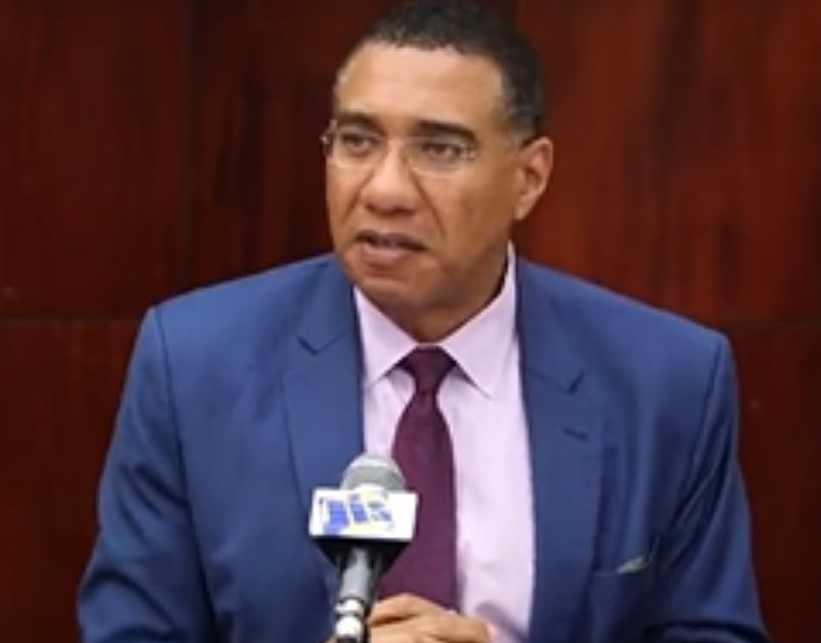Jamaican Prime Minister Andrew Holness said the recent visit by CARICOM’s Eminent Persons Group (EPG) to Haiti, which met with various Haitian leaders, regrettably did not yield any conclusive results.
The EPG is made up former prime ministers Perry Christie, from The Bahamas; Dr. Kenny Anthony of Saint Lucia, and Bruce Golding of Jamaica. They visited Haiti from July 12 to 15 and met with Haitian stakeholders to support dialogue on finding a solution to the ongoing crises facing the country, elections and governance.
At the EU-Caribbean Leaders Meeting in Brussels, Holness said: “This was a follow-up to the discussions held in June in Kingston, Jamaica, when, together with the then-chairman of CARICOM, we welcomed some 50 Haitian stakeholders to Jamaica for three days of talks.”
“These talks, while not conclusive, allowed for the relevant parties to discuss openly, matters of interim governance and transition. We regret the lack of an outcome at this last meeting, but we understand progress is not linear although they remain hopeful. It is crucial that the international community commits to implementing strategic and targeted action that will allow Haitians to go about their daily lives and for the political process to make concrete progress.
“We note the imposition of sanctions as an important part of the suite of tools needed to address what is an extremely complex situation, but they are insufficient to adequately address the security situation and transnational impact of gangs.” In a statement, CARICOM said the EPG met with Haiti’s prime minister and key political and civil society stakeholders, and representatives of the business community and a group of people with expertise in security, human rights and marginalized social groups.
“Aware that the mediation effort would take time, the EPG placed emphasis on discussing process in order to put in place a mechanism that would facilitate progress taking into account the inherent difficulties of negotiations involving a large number of protagonists,” CARICOM said. “The objective was attained to some extent.
“The principle of reducing the negotiating group of government, opposition and civil society representatives to manageable size was more or less accepted, awaiting the outcome of internal consultations by one of the three groups on a revised draft process protocol. Progress was also made in reducing the items for negotiation.
“Other positives related to broad agreement on the issue of enlarging the High Transition Council and greater cohesion on security, the issue being not the need for security assistance but what form it should take. The EPG recommended that talks between the various groups, which had taken place since the Jamaica meeting, should continue in order to help narrow the differences between the protagonists. It also advocated the importance of trust-building by the government.
“The EPG informed it would return to Haiti in the coming weeks to renew its facilitation efforts.” Haiti has been in a state of crisis since the assassination of President Jovenel Moïse in 2021. Officials at the United Nations have said that murders, rapes, kidnappings and lynchings were on the rise in Haiti. Much of the violence, officials say, is concentrated in Port-au-Prince and gang related.
United Nations (UN) Secretary General António Guterres recently urged the UN Security Council to take “bold and immediate” action to stem the violence and brutality in Haiti.











